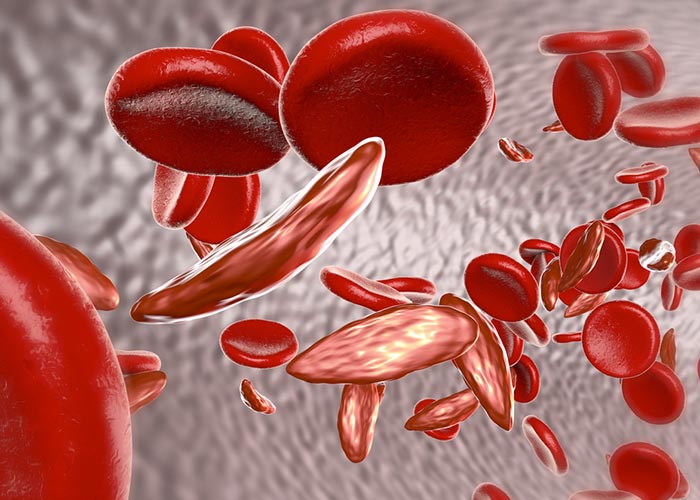International Mother Language Day is observed on 21st February every year to promote linguistic culture and diversity. International Mother Language Day was proclaimed by UNESCO (United Nations Educational Scientific and Cultural Organization) in November 1999 to promote, protect and develop the languages across the world and to promote peace and tranquility. International Mother Language Day has been observed since 2000 to promote and protect Linguistic Culture and diversity across the world.
International Mother Language Day 2025
International Mother Language Day 2025 will be celebrated on 21st February, Friday.
Last year, UNESCO celebrated the International Mother Language Day at its headquarter in France. There were various seminars and workshops which were conducted to mark the day. The event was started by the opening speech given by two Permanent Delegates to UNESCO and a representative of la Francophoneie. The event was concluded by a debate based on the topic “Languages count”.
In Bulgaria, reading of Shakespeare in 32 languages was carried out on the occasion at Plovdiv, Bulgaria. Various other countries like South Africa, Mongolia, and Japan also presented their cultural traditions in the event.
Bangladesh, the volunteer of the International Mother Language Day, celebrated ‘Shaheed Dibas’ on the day to pay tributes to the martyrs of the language movement in Bangladesh which helped to establish the right for the mother language ‘Bangla’ in 1952.
History of International Mother Language Day
International Mother Language Day was first announced by UNESCO (United Nations Education Scientific and cultural Organization) on 17th November 1999. It has been observed annually since 2000 on 21st February every year.
The man behind the Mother Language day was Rafiqul Islam, a Bengali citizen residing in Vancouver, Canada. Rafiqul Islam wrote a letter to Kofi Annan (7th Secretary General of the United Nations from January 1999 to December 2006) on 9th January 1998, requesting him to observe an international day to protect and promote different languages around the world. He also suggested a date – 21st February, to commemorate the 1952 Bengali Language Movement in Bangladesh.
The Bengali Language Movement was a political Movement in Bangladesh in 1952, then under the dominion of Pakistan; to recognize the Bengali language as the official language of Bangladesh except Urdu. It was a nationwide movement in Bangladesh in which four Bangladeshi students lost their lives. Bangladesh has been observing its own Language Movement day each year on 21st February since 1955.
Heeding to the request of Rafiqul Islam, UNESCO proclaimed 21st February as International Mother Language Day in November 1999. The inaugural celebration of International Mother Language Day was held in 2000.
Why is International Mother Language Day Celebrated?
Languages play a very important role in preserving the culture and promoting peace and harmony. Languages play a vital role in identification of communities, to communicate and to promote peace and development. Languages also constitute a medium of learning and education.
Because of globalization many languages are at the verge of extinction. Fading languages will impact the cultural diversity and also result in the loss of a valuable resource.
An estimated 6000 languages are spoken around the world, out of which nearly 43% are endangered. These languages constitute a most important ingredient in promoting cultural harmony, peace and tranquility; losing them will mean the loss of a vital heritage.
It is to promote the languages and to protect them from getting extinct; the International Mother Language Day is celebrated.
One of the main objectives behind observing the International Mother Language day is to encourage people to promote their mother languages and also to acknowledge their linguistic diversity and unity.
How is International Mother Language Day Celebrated?
International Mother Language Day is celebrated across the world and it is observed as a public holiday in Bangladesh.
On the International Mother Language Day various UN agencies along with UNESCO (United Nations Educational Scientific and Cultural organization), organize various programs to promote languages and linguistic culture.
People are encouraged for preserving their mother languages and also to learn more than one language. Learning an additional language will result in a wider spread of language ensuring its longevity.
Many policies may be announced by the governments and non government organizations towards promotion and preservation of languages and to encourage learning new languages.
International Mother Language Day is celebrated with a nationalistic fervor in Bangladesh with people laying flowers at the cremation site (locally known as Saheed Minar) of four youths who lost their lives in 1952 Bengali Language Movement.
Traditionally people around Bangladesh purchase glass bangles on the occasion of International Mother Language Day on 21st February, they eat like they would eat in a festival, organizing parties and inviting guests.
In Bangladesh as well as other places across the world, many events are organized to honor the individuals who have contributed to the promotion and preservation of language.
Linguapax prize by Linguapax institute, Barcelona, Spain, is conferred to those individuals on the International Mother Language Day, who have made exceptional contribution in the field of languages.
How to Celebrate International Mother Language Day?
There are various ways to celebrate the International Mother Language Day. Whether through organized programs or in the class rooms the importance of languages in preserving the culture and overall development must be stressed upon. Below given are few methods to promote Mother Languages around the world-
1) Encourage Children
Teachers should tell their wards about the essentiality of their mother tongues as well as other languages, whether big or small. Children should be told that languages act as a bridge between the communities and play a vital role in establishing peace and tranquility.
2) Promote Mother Tongue
Efforts should be made to promote mother tongue. You may organize various programs to promote the use of your mother tongue or you may choose to speak and write only in your mother tongue; at least for a day. You may ask your family, friends, colleagues also to do the same.
3) Create Awareness
Create awareness of people through various modes of communication; about linguistic culture and values. Social media can be used as a platform to create awareness of the people and letting them acknowledge the value of their mother tongue as well as other languages.
4) Admire Linguistic values
The prime reason for extinction of languages is that they are not admired enough even by their original speakers. In the days of globalization, small languages are getting phased out at a fast pace, as they are not used enough on their own motherland. To prevent such languages from getting extinct, it is necessary that the linguistic values of a community, however small it might be; must be admired, acknowledged, promoted and preserved.
5) Make Learning easy
Methods must be derived to make learning of a language easy and affordable. Policies could be announced by governments in collaboration with various NGOs in order to promote the learning of languages and also on the learning of more than one language.
6) Organize Commemoration events
Organize commemoration events in your community or village to encourage those who have contributed in the promotion of languages and also those who have learned to read or write more than one language. Honoring such people will also encourage others to learn languages and also acknowledge their values.
Themes of International Mother Language Day
- Theme of 2025 – “Addressing Illicit Trafficking of Cultural Property in the Digital Era”.
- Theme of 2024 – “Multilingual education – a pillar of learning and intergenerational learning”.
- Theme of 2023 – “Multilingual education – a necessity to transform education”.
- Theme of 2022 – “Using technology for multilingual learning: Challenges and opportunities”.
- Theme of 2021 – “Fostering multilingualism for inclusion in education and society”.
- Theme of 2020 – “Languages without Borders”.
- Theme of 2019 – “Indigenous Language matter for development, peace, building and reconciliation”.
- Theme of 2018 – “Linguistic Diversity and Multilingualism Count for Sustainable Development”.
- Theme of 2017 – “Towards Sustainable Futures through Multilingual Education”.
- Theme of 2016 – “Quality Education, Language(s) of Instruction and Learning Outcomes”.
- Theme of 2015 – “Inclusion in and Through Education: Language Counts”.
- Theme of 2014 – “Local Languages for Global Citizenship: Spotlight on science”.
- Theme of 2013 – “Mother Tongues and Books – Including Digital Books and Textbooks”.
- Theme of 2012 – “Mother Tongue Instruction and Inclusive Education”.
- Theme of 2011 – “The Information and communication Technologies for the Safeguarding and Promotion of Languages and Linguistic diversity”.






